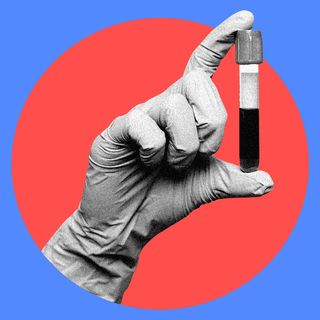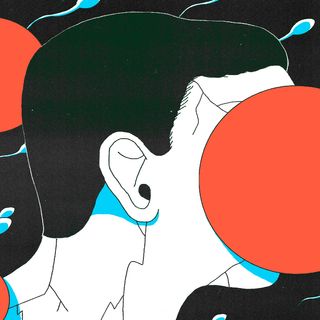A new study has confirmed a genetic link between endometriosis and depression, in addition to establishing a possible, causal association linking the two with gastrointestinal conditions as well.
Endometriosis, a disorder in which tissue that normally lines the uterus grows outside the uterus, affects one in every 10 women globally. Depression is common in patients of endometriosis, but to date, the association between the conditions was unclear — as was the link between endometriosis and gastrointestinal conditions despite their common co-occurrence.
“…by doing this type of analysis, … we really confirm and validate that there’s something that’s biologically shared across individuals that suffer these traits,” study co-author Professor Dale Nyholt, a geneticist at Queensland University of Technology in Australia, told ABC News.
It’s not accidental for these conditions to show up for the same individual, he says.
“I just never considered that my mental health or my bowel or stomach ever had anything to do with my endo. … I just always put the gut issues down to the body reacting to the pain,” Carolyn Cavanough, who had a hysterectomy to escape the crippling pain of endometriosis, recounted in a report on the study’s findings.
Related on The Swaddle:
Study: Fatigue an Overlooked Symptom of Endometriosis
Published in Human Genetics, the study analyzed genetic samples from more than 208,000 individuals across the globe. The samples contained almost 7,000,000 SNPs (a type of genetic variation), making the study the largest genome-wide association study on endometriosis published to date.
After an assessment of overlapping mutations common to both endometriosis and depression, the researchers found several shared genetic risk factors — some involving genes with roles in pathways governing gastric health, among other things. Further analyses also indicated a causal association between endometriosis and depression, and at least one abnormal gastric condition: peptic ulcers, or gastroesophageal reflux disease.
Moreover, researchers believe the discovery of the genetic link could inspire diagnosis and treatment of endometriosis that take comorbidity of the depression and gastric health conditions into account. “Genes and pathways identified in our study could serve as potential druggable targets for endometriosis and depression [simultaneously],” the study notes.




